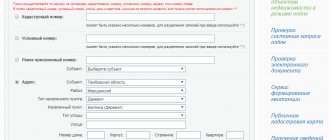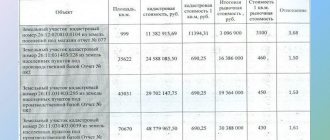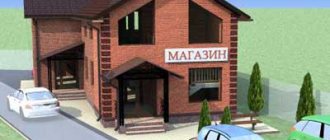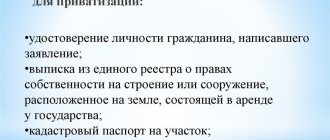Free privatization of housing began in 1991. But the dacha plots were in a “suspended” state until 2006. Citizens, and, presumably, the state, were not entirely clear how to deal with them?
On the one hand, millions of Russian families were the owners of the notorious “five hundred square meters” - a plot in a gardening partnership or similar country real estate “on the ground”. On the other hand, retroactively purchasing land and buildings at full price was clearly an unbearable financial burden for them.
The procedure for registering ownership of a summer cottage existed, but it was so complex, confusing, and ambiguous that not everyone could use it. This meant that for many years most Russians were not sure whether they owned their land or not, and the state had a huge layer of property in the shadow sector of the economy. After all, since the plot is not owned, then it cannot be taxed.
Finally, in 2006, Federal Law No. 93 came into force, immediately dubbed the “Dacha Amnesty” in all circles. It became possible to privatize plots free of charge and in a simplified manner. Initially, the law was limited to 2021, but has now been extended until 2021.
It is possible that events will develop further, as with Federal Law No. 1541-1, which regulates the free privatization of housing. Its validity was also extended several times, and then the law was declared indefinite.
By the way, if the issue of housing privatization is still relevant for you, you can read about it in detail in the article on our portal “How much does it cost to privatize an apartment?” But let's return to land plots.
At the moment, land can be privatized for free until March 1, 2022. As in the case of an apartment, this does not mean that you will not have to pay anything at all. Obtaining some certificates and carrying out some procedures requires payment. But the costs, of course, are incomparable with the market value of the site.
In the article we will clearly define the price order for the privatization of a summer cottage. The final price is influenced by the region, local government regulations and some other factors.
What lands can you get for free?
So, the “Dacha Amnesty” involves the gratuitous transfer of ownership of a plot of land that actually belongs to a family or citizen. But not everyone. The register of plots subject to free transfer is clearly defined. This:
- Plots on which privatized real estate is located
That is, if there is a privatized residential building and outbuildings on a non-privatized plot, you have the right to freely receive ownership of the land located under them and the territory necessary for their operation and maintenance. It is important that they are built before the Land Code comes into force. That is, until 2001.
If buildings are not privatized, the land under them does not become property. It will either have to be purchased or leased.
- Plots under long-term lease
Typically, a long-term lease agreement is for 20+ years. But already three years after its conclusion, you can apply for free privatization of the leased plot.
- Plots received for gardening, individual housing construction, private plots
If the plot was originally taken for the construction of a private residential building, amateur gardening (essentially, “for a summer residence”), or to conduct a subsidiary plot on it (but not farming), then you already have all the legal rights to free privatization. All that remains is to arrange everything legally.
- Areas under garages
This registry item most likely does not concern “dacha residents,” since a privatized garage at a dacha is no different from other outbuildings. We are talking about members of garage cooperatives, many of which originated during the Soviet era. Now the owner of each box can become the full owner of the plot on which it is located. Privatization is formalized through the board of the cooperative.
- Land in perpetual use
This paragraph mainly concerns plots received by inheritance. Before the Land Code of the Russian Federation came into force, in Russia (and earlier in the USSR) land plots were provided to citizens for indefinite use. Now, even if the plot was not privatized by the testator, his heirs can begin the procedure on the same grounds that he had. Naturally, documents are required confirming that the plot was in perpetual use of the deceased person.
Who has this right?
Even if you decide to privatize, then understand that not everyone will be able to get a house or other residential building in a rural area or village, because there is a certain circle of people who are allowed to do this. This category of citizens includes those persons who are registered in a village house in the village and have been living there for a certain amount of time. Even those who serve in the army or are treated in a hospital have their rights to a share of the house. Some of them are reserved after writing a certain application.
Dear readers!
Our articles talk about typical ways to resolve legal issues, but each case is unique. If you want to find out how to solve your specific problem, please contact the online consultant form on the right →
It's fast and free!
Or call us by phone (24/7):
If you want to find out how to solve your particular problem, call us by phone. It's fast and free!
+7 Moscow,
Moscow region
+7 Saint Petersburg,
Leningrad region
+7 Regions
(free call for all regions of Russia)
Minors often become participants in privatization automatically, but paperwork on their behalf falls on their parents or guardianship council. But this only applies to those who have not yet turned 14 years old.
There is also an option in which privatization can be carried out by your representative or a certain company that becomes your intermediary. But you must understand that such services will cost a considerable amount, although the privatization of your residential village house will happen much faster than usual. It is best if you take care of this issue yourself. It may take a long time and you will have to go through a difficult path, but you will be one hundred percent confident in the result.
List of documents
At first glance, the package of documents required for the free privatization of a family-owned land plot is not very extensive. You only need to prepare three “papers”:
- A title document for land, which may be: An act on the transfer of a land plot for use to a citizen or citizens (issued by the government body that carried out this transfer)
- Long-term lease agreement (original and copy)
- Certificate of inheritance (issued by a notary to the heir)
But in practice, most likely, more documents will be needed. Registrars may request additional certificates required by local authorities. Considering that the site is most often located quite far from your permanent place of residence, each extra trip to submit documents greatly delays and increases the cost of the procedure.
To avoid this, it is better to consult with a lawyer in advance regarding the exact list of required documents. This can be done on the Prav.io portal.
✅ Deadlines
The legislator sets the period during which the applicant receives a response from the administration. The main provision is considered to be Federal Law No. 1541-I “On Privatization...” of 07/04/1991, which states that privatization must be carried out no later than 2 months from the date of submission of the application. But is this really so?
The period in practice is somewhat longer - from 3 to 4 months, excluding legal proceedings. If you go to court, the time frame will increase to 6 months or longer. It is difficult to predict exactly how long the procedure will take. It all depends on the work of local authorities, carrying out cadastral work, preparing an extract from the Unified State Register of Real Estate and other nuances.
We discussed everything related to housing deadlines in the article “How long does it take to privatize an apartment?”
Document costs (table)
We have prepared a table for you that allows you to calculate and plan the costs of processing documents.
| Title of the document | Price |
| Extract from the Unified State Register of Real Estate | From individuals – 300 rubles |
| Cadastral passport | From 2000 rubles depending on the region |
| Geodetic survey of the object | From 7,000 rubles to 15,000 rubles (also depending on the region) |
| Archival references | 200-300 rubles or free (depending on the region) |
| Notarial services | From 1000 rubles |
Of course, the figures are approximate, the exact price regulations are set by local authorities, in addition, you may already have some documents.
Around the garden plot
To the greatest extent, the “Dacha Amnesty” concerns land plots that have been called “dacha” since Soviet times. Those same “five hundred square meters” in the gardening partnership that grew like mushrooms around cities starting in the 70s.
The land was allocated and registered immediately in a “large piece” - to SNT (horticultural non-profit partnership) or DNT (dacha non-profit partnership). And then it was cut into small sections for each member of the community.
The formal owner of the land was not the person using his dacha, but the structure - the partnership of gardeners and summer residents. That is, the summer resident could be “asked” from the partnership at any time, although, in fairness, it must be said that such cases occurred quite rarely. Federal Law No. 93 allowed such plots to be registered as personal property.
The procedure for registering the privatization of a plot owned by SNT is more complicated than that of an individual plot. A member of a gardening association should first apply to its chairman and send the appropriate application to the local authorities. Only after the application is approved can you begin the procedure of registering the land in your name.
If the dacha was allocated to the citizen personally, the registration procedure will be general - right in Rosreestr. In this case, the simplified registration procedure provided for by Federal Law No. 93 applies, and if possible, it is advisable to use it. The cost of registration consists of payment for the following actions:
| Name | Price |
| Territory demarcation | From 10,000 rubles |
| State duty for privatization of land | According to the “Dacha Amnesty” procedure - 350 rubles, in other cases - 2000 rubles |
| Extract from the Unified State Register of Real Estate | 300 rubles |
Even from the table it is clear that using a simplified procedure is more profitable - the duty is almost six times lower. So it makes sense to have time to privatize the land while the “dacha amnesty” is in effect.
Registration of the agreement
After you have collected all the necessary documents, you will need to write an application and submit a corresponding request to the municipal council, with whom you will enter into an agreement to transfer the house into your ownership.
In a village, such a body is most often the village council. Therefore, you will need to head there. After you receive consent and sign the agreement, you need to go to the territorial office of Rossreestr with all the documents so that they register you. If you have chosen collective or general privatization, then each of the participants will receive the relevant documents.
In fact, everything is quite simple if you do everything in a strictly designated order and provide only certified documents. Then you don’t have to worry that privatization will be delayed and that you will spend a lot of money. If necessary, you can always consult with specialists or ask for their help. The main thing is not to be afraid to defend your rights, even through court.
Ground under the garage
In addition to garage cooperatives, there are individual ones, for the construction of which citizens received permission at different times. The land under such garages is the easiest to privatize - all the provisions of the Dacha Amnesty apply to them. A separate garage building (more precisely, the land under it) is registered in person, directly at Rosreestr or the MFC “My Documents”.
But the land of a garage cooperative is privatized only by collective application. The land is transferred into ownership only after full payment of the share contribution. The registration is carried out by an elected person representing all members of the cooperative. Usually the chairman plays this role.
The main cost of privatizing land under a garage is the preparation of cadastral documentation.
Privatization through court
The refusal of the authorized body to privatize land must be justified.
If the reasons for the refusal can be eliminated (provide missing documents, correct errors and inaccuracies), then the applicant has the right to apply again after they have been eliminated. But if this is impossible to do, and the citizen believes that the reasons for the refusal are unlawful, then he has the right to appeal such a decision in court. The statement of claim must clearly reflect the circumstances of the case, the reasons for the refusal of the government agency, and references to the provisions of the laws that, in the opinion of the plaintiff, were violated. The application must be drawn up competently, taking into account the legal subtleties of the privatization process and procedural procedures in general.
Considering the responsibility and complexity of such cases, when appealing decisions to refuse privatization, it is best to use the services of a lawyer. A court decision made in favor of the plaintiff will serve as the basis for the authorized body to issue permission to privatize the land.
Cases challenging a decision of a state body are heard by courts of general jurisdiction or arbitration courts. Jurisdiction of the case will depend on the legal status of the applicant (individual or legal entity).
For rent
If the land is leased from a municipality for a long time, the “Dacha Amnesty” is an excellent reason to transfer it to your private property. If the lease was executed no later than November 2001, there should be no problems at all. You just need to complete the full package of necessary documents.
You can see the cost of obtaining documents and certificates required for free privatization of leased land in the table above. The fee will be 2000 rubles. The simplified procedure does not apply to the privatization of leased land.
When can they refuse?
You can receive a refusal if the following circumstances exist:
- if representatives of the local administration decided to withdraw the site for the needs of the state (for example, the construction of a school, public facilities);
- when a restriction on private property is established on the land at the legislative level (the site is included in the easement under another agreement);
- The site is reserved for the needs of the state (military and security camps, buildings).
Failure may also occur in the following situations:
- the owner of the plot does not have the authority to transfer the land for privatization;
- the land object intersects with other areas (there is no land survey);
- provided false documents;
- the applicant has already exercised his right to privatization previously;
- there is no payment of the state duty required for the procedure (how much does it cost to privatize land?).
More details about in what cases an applicant may be refused and what categories of land are not subject to privatization can be found here.
Under a private house
A huge amount of private real estate in Russia is located on land owned by the state. With apartment buildings everything is clear; in this case there is no choice. But the land under a private house can and should be privatized. Until the owner of the house does this, the land will remain on the balance of the state. Therefore, the homeowner cannot dispose of it. And in the event of alienation (for example, for the construction of a state facility), he will receive compensation only for the residential building.
So it is still worth privatizing the land on which a private house stands. You will face costs, but at least you won’t have to buy the land at market value.
So, what expenses will be required to privatize land for individual housing construction?
| Name | Price |
| Registration certificate for the building | 1500 rubles |
| Extract from the Unified State Register of Real Estate | 300 rubles |
| Carrying out the land surveying procedure | From 7000 rubles |
| State duty | 350 rubles for the land under the house and 2000 if other plots are privatized |
| Notarial services | From 1000 rubles |
When the land occupied by your private house or cottage, as well as the territory necessary for its maintenance and operation, is privatized, nothing threatens your property.
A plot of land with a house cannot be alienated without compelling legal reasons. And if such problems do arise (for example, a federal highway passes through it), then you will be entitled to compensation for both the house and the land.
Features of a one-time procedure
Simultaneous privatization of these objects is impossible.
For those who are interested in whether it is possible to obtain ownership of a land plot if private real estate is not privatized, we will answer that if a person intends to privatize a plot of land, he must first register the house in his name, for example, remove the status of an official one from it. After this, you can perform actions with the site. Help: if the plot has already been privatized, then ownership of the house does not need to be registered.
State duty
The preparation of any important document is a paid government service and is subject to a fee. Documents for registration of privatized land in Rosreestr are, without a doubt, important. The fee for them is fixed, its size depends on the nature of the procedure:
- Privatization of land for individual construction, personal subsidiary farming, gardening and vegetable gardening, garages is subject to a fee of 350 rubles from the owner
- Privatization of other plots - in the amount of 2,000 rubles per owner.
The fee must be paid before visiting Rosreestr or “My Documents” (MFC). Without a paid receipt, the application will still not be accepted.
✅ Legal assistance
The legislation carefully regulates the procedure for privatization of real estate. Transferring land into private hands is a rather complex undertaking. The applicant will have to collect an impressive package of documents, competently draw up an application, wait for a response from the administration, pay for services and perform a whole series of other actions. It is extremely difficult to cope with everything alone. One wrong decision, and the procedure can be significantly delayed or lead to litigation.
We recommend taking advantage of a free legal consultation.
Our portal employs real professionals in their field. By contacting an expert, you will receive a detailed answer to your question. The lawyer will advise you on how to properly privatize the land under your house, prepare a list of documents for you, help resolve disputes with other participants in the privatization and protect you from wrong steps. You shouldn’t be left alone with your problem - contact a lawyer and you will save not only time, but also nerves. Attention!
- Due to frequent changes in legislation, information sometimes becomes outdated faster than we can update it on the website.
- All cases are very individual and depend on many factors. Basic information does not guarantee a solution to your specific problems.
That's why FREE expert consultants work for you around the clock!
- via the form (below), or via online chat
- Call the hotline:
- 8(800)302-39-65
— All residents of the Russian Federation - +7(495)128-69-80
— Moscow and the Region - +7(812)509-13-65
— St. Petersburg and region
- FREE for a lawyer!
By submitting data you agree to the Consent to PD Processing, PD Processing Policy and User Agreement.
Anonymously
Information about you will not be disclosed
Fast
Fill out the form and a lawyer will contact you within 5 minutes
Tell your friends
Rate ( 1 ratings, average: 5.00 out of 5)
Author of the article
Maxim Privalov
Lawyer. 2 years of experience. I specialize in civil disputes in the field of housing and family law.
Author's rating
Articles written
614
How and where to pay?
The state fee can be paid:
- In cash through any licensed Russian bank or Russian Post
- Via a special terminal
- Through the State Services portal
- Through payment systems
The last method is only theoretically possible. Because an electronic payment confirmation printed by you on your home printer will not be relevant confirmation of payment for government agencies. For it to become this way, it must be stamped with the seal of the bank through which the payment went through.
Thus, paying state duty through electronic systems is simply pointless - you will still have to go to the bank to get a stamp. So, if you want to pay the fee from your PC, it is better to do it immediately through the State Services portal.









